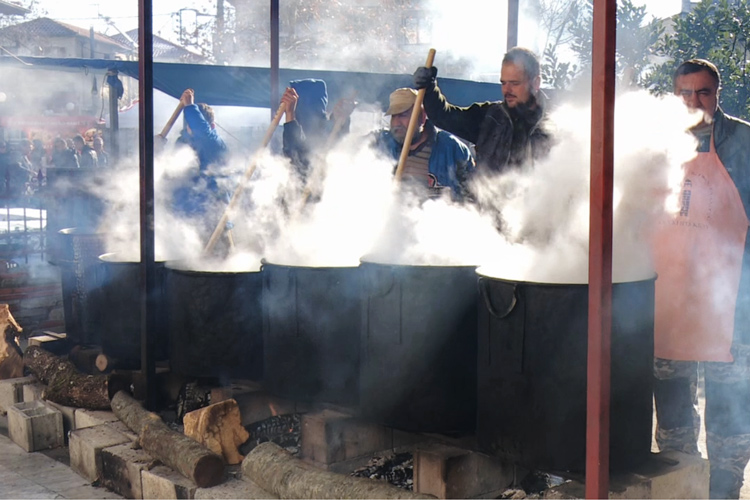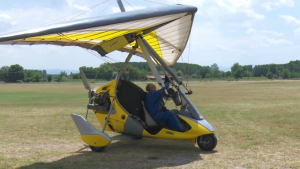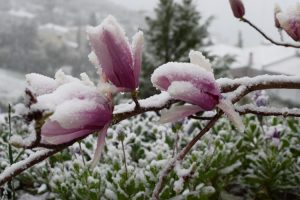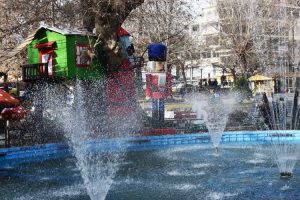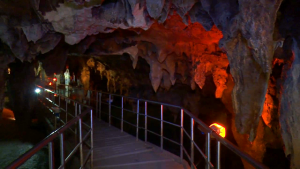Kurbani is a custom brought by refugees from Eastern Thrace (Krionero) during their emigration in 1920s. This custom has come down to us since Ancient times, when the Ancient Greeks sacrificed animals to the gods in order to satisfy them and to earn their mercy.
The legend states that the custom began when during sowing in Krionero village, appeared a deer, which was considered a divine sign. The residents of the village, after allowing the animal to rest, then slaughtered it and cooked it with a broth of ground wheat, which was placed in large cauldrons. This food was called “kurbani”, which on Turkish language has the meaning of sacrifice and offering. Then the kurbani was shared with the village residents for free and the custom was completed with celebrations.
For one year, the residents did not let the deer to rest, and he did not come back again. Since then, they have continued the tradition by slaughtering cows.
The ingredients for the kurbani (meat, wheat) are gathered by the villagers gratuitously. With all the fun and hitting the tins, members of the kurbani fellowship pass the whole village, door-to-door to all the houses asking for the assistance of the inhabitants to make the kurbani.
In modern times, the kurbani is an integral part of the tradition of the Kalambaki region and is now celebrated with two-day events that attract people from the prefecture of Drama and beyond.
On the afternoon the day before the feast, at St. Georgios church dating back to 1908, there is a great festive evening with the performing of Saint Athanasios icon. At the same time, the cauldrons destined to make the kurbani are placed in the courtyard of the church. The meat is sliced and put into the cauldrons. As soon as the night falls, the feast begins in taverns of Kalambaki with sounds of Dauli and Zurna.
Late in the evening the fire warm the cauldrons and the meat start to cook.
Early in the morning the bells strike by inviting people to liturgy. Immediately afterwards, as the people come out of the church, the fellowship’s members prepare and offer to everyone the first meal: a little bit meat and a glass of tsipouro. Zurnas begin to play and the dancers of the fellowship dance on the square, where all the people are going to dance. It is said that anyone who dances that day will be lucky and his farm animals will breed.
Finally groats are thrown into the cauldrons for boiling in the broth. So now the cooks need to constantly turn the groats over the fire so that the groats are not burnt.
Outside the feast continues without stopping. Late in the afternoon, at 3 o’clock the instruments stop for a while. It is the moment when the priest blesses the meal to start sharing between the inhabitants of the village and all the guests.
One by one, people patiently passes through the courtyard to get a portion of kurbani. Distribution will continue for several hours, until the last person, until all the food is finished. Only then will come the moment and the team members will take a breath, they will remain in the sweet sound of the zurna, in the rhythmic beat of the dauli…

